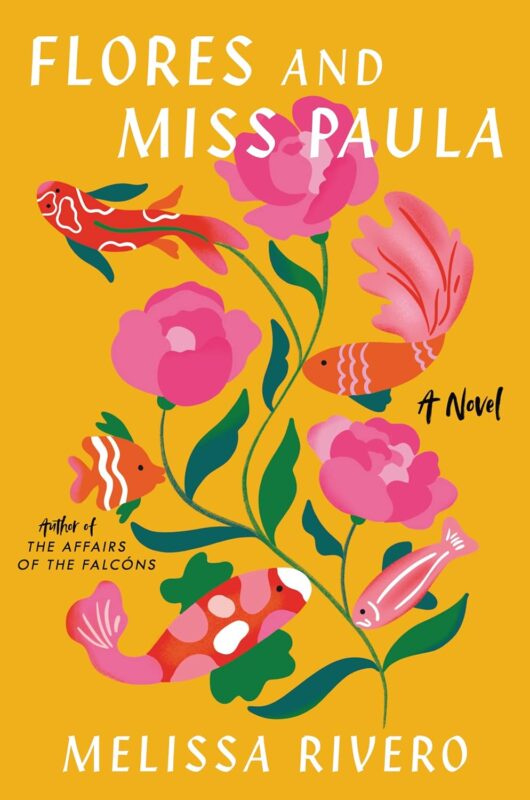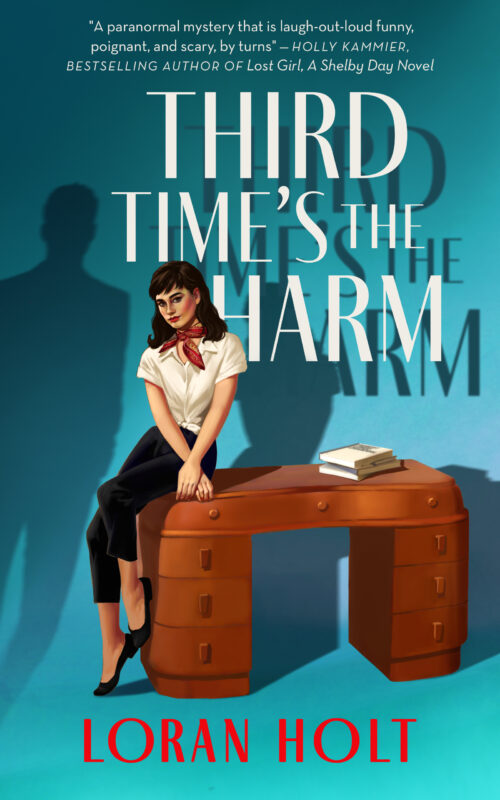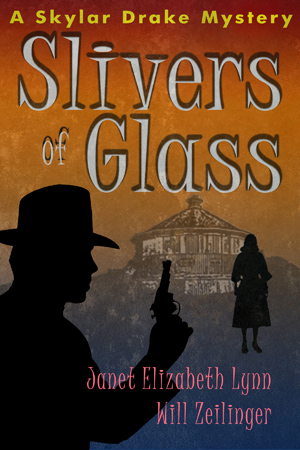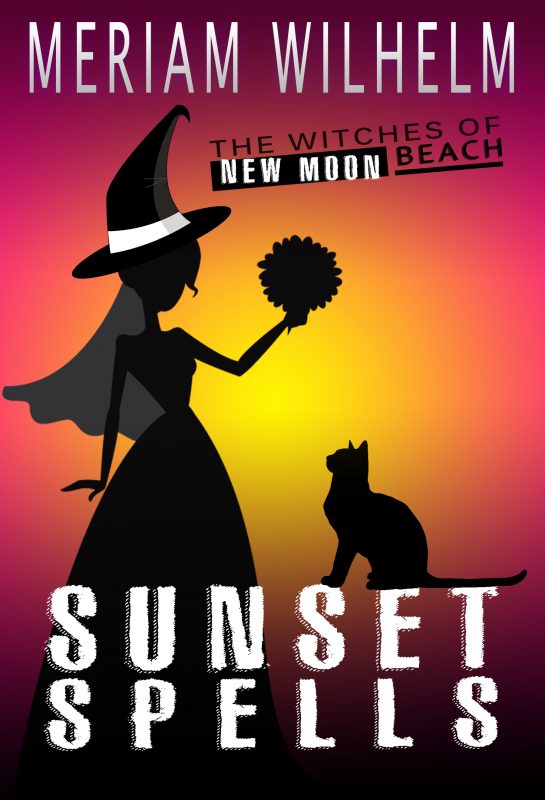Advice to Myself as a Newbie Author
September 22, 2008 by A Slice of Orange in category Archives tagged as Advice to Myself as a Newbie Author, Lynna Banningby Shauna Roberts
http://ShaunaRoberts.blogspot.com
Today’s Guest: Lynna Banning
Lynna Banning is the author of thirteen historical romance novels and a former RITA nominee. Her newest book, a September release from Harlequin Historical, is Templar Knight, Forbidden Bride.
Lynna, if you could travel back in time to before you were first published, what advice would you give yourself?
 1. Read lots in my genre (historical romance). It’s helpful to see what other houses are publishing and how other writers handle problems of point of view, pacing, types of villain, etc. Keep up with changes in the overall market and your particular genre.
1. Read lots in my genre (historical romance). It’s helpful to see what other houses are publishing and how other writers handle problems of point of view, pacing, types of villain, etc. Keep up with changes in the overall market and your particular genre.
2. Read more outside my chosen genre—nonfiction, literary fiction, trade and mass market popular fiction, and especially how-to books. Start with the “easy” ones: James Frey, How To Write a Damn Good Novel; Jack Bickham, Scene and Sequel; Syd Field, The Screen-Writer’s Workbook (good for plotting); and Ann Hood, Creating Character Emotions. Then move on beyond “the basics”: Linda Seger, Making a Good Script Great; Donald Maass, Writing the Breakout Novel and the Writing the Breakout Novel Workbook.
And keep reviewing these helpful books as you write!
3. Try to join the most advanced critique group you can find, preferably with published authors. You will suffer, but you will learn. However, protect yourself from critique groups that feel overtly or subtly “toxic.” Sometimes this is hard to recognize, but if you generally feel worse after the session (and not fired up and encouraged), give some hard thought to Why.
4. Do go to workshops, writing groups, and writing classes. Just keep your good sense about you, and your ego and your sense of “self” on an even keel. If your ego is very tender, protect yourself first and learn writing stuff later. Also consider getting some psychological counseling to help you retain perspective.
5. Brush up on the basics of grammar and punctuation. I highly recommend two reference books: (1) my old high school grammar text, Warriner’s English Grammar and Composition and (2) Jan Venolia’s Write Right. Both are easy to look up stuff in.

6. Learn to distinguish a “good” rejection letter from a “real rejection” letter. If the letter goes into any depth at all, they might consider a rewrite addressing those issues. Any letter that has even one line addressed specifically to you or your manuscript is a “good” rejection letter.
7. Learn not to see a manuscript’s rejection as anything but rejection of the manuscript itself, not of you personally. This sounds so easy, but it’s hard to detach one’s “person” from one’s “work.†But do try. Squashed egos are not good for writers.
8. Try to write consistently, every day if you can manage it. Use even small blocks of time, such a lunch-hours at work, hours spent on airplanes, time in hotel rooms (it helps if you first hand-write, as I do, on yellow lined note pads, or use a laptop). Set a daily goal: Mine is four typewritten, double-spaced pages a day, about 1,000 words. (Caveat: If a child has the mumps or I have a migraine, I take that day off.)
✥✥✥✥✥
To learn more about Lynna, please visit her Website at http://www.LynnaBanning.com. Her newest book, Templar Knight, Forbidden Bride, is available in September at major bookstores and can be ordered online from Amazon.com, Barnes & Noble, and Borders.
The Temptations of the Muse
September 16, 2008 by A Slice of Orange in category Archives tagged as John Le Carre, muse, temptation, writingUSA Today reported that in an interview with The Sunday Times, John Le Carre, British intelligence agent turned thriller writer, said he was “tempted to defect to the Soviet Union”. Le Carre, real name David Cornwell, joined British intelligence in 1949. He wasn’t sympathetic to Communist ideology, but he was “curious about what was on the other side of the Iron Curtain”.
Is he a writer, or what?
As an author, I can understand where he’s coming from. The muse is always whispering in our ears, asking questions and making suggestions. When I was writing my historical romance, Rogue’s Hostage, which was set in Pennsylvania and Quebec, I jumped on the opportunity to attend a conference in Toronto. Then I talked my husband into joining me afterwards so I could see Quebec City for myself. We had a lovely vacation, I got great visuals of the area I’d be writing about, and I found research material that would have been much harder to find in California. (This was in 1994 before so much was available on the internet.) This experience helped me to write a better book.
A few years ago, my publisher, Amber Quill, started looking for gay romances, something I’d never thought I’d write, but my muse had different ideas. I shocked friends and family by taking this step, but my sales are up and one of my stories was an EPPIE finalist. Sometimes the muse knows best, though I’m glad Le Carre didn’t defect. Otherwise we’d never have had The Spy Who Came In From the Cold, The Constant Gardener, and dozens of other books by a terrific author.
What has your muse tempted you to do?
Linda
ywriter4
September 15, 2008 by Marianne H. Donley in category Java Plots by marianne h donley tagged as Java Plotsby
Marianne Donley
On one of the many loops I belong to, someone mentioned a free writing program ywriter4 . About a dozen people on the loop chimed in saying they used the program and loved it. They mentioned story boards, and “problem word†finder, total word count along with chapter and scene word count, and other neat stuff I didn’t know I wanted. Curious, I downloaded the program and tried it. (For the faint of heart –no viruses, I swear.)
Okay, I love this program.
It has a Daily Word Count Tracker, so I know how many words I need to write each day to stay on target for finishing my work in progress. I don’t know why I like knowing I need to only write 300 words a day to finish by December 31. I suspect it’s because, heck 300 words is something I can practically finish in my sleep. 300 words is not as overwhelming as 300 huge blank pages of white. If I have to skip writing a day or two or okay, okay a week, and that Daily Word Count starts edging up toward 400 words a day, then I find myself working really hard to move it back down to my target of 300. And I can’t cheat –one word on a page doesn’t count as a page finished no matter how many paragraphs HAD been on that page during the day.
The Story Board feature is pretty cool too. After you create empty files of all your chapters and scenes (should you write like me and plot first) then you can decide from whose POV to write each scene. The Story Board then plots the book using your main characters as threads. At a glance I saw that I had six scenes from the heroine’s POV and my hero completely disappeared from the book –not a good idea. So I was able to rework the outline before writing to make sure the poor man was included.
Do you find yourself over using words? This program will run a problem word finder, either predefined (as, then, suddenly, all “ly†words, etc.) or user defined (for this book, seriously). It will even give you at total word usage count. I currently have written “seriously†192 times and the word “and†502 times. I suspect I need to get rid of some of both of them –seriously.
But my all time favorite part of this program, Scene Notes. I always have these brilliant ideas in chapter ten about chapter two. It is so very tempting to go back to chapter two and used said brilliant idea. Yet, noodling around in chapter two doesn’t move my story forward toward the finish line. I want to get to the finish line! So I can click on the Scene Note tab for chapter two, write my brilliant idea down, then get back to chapter ten. The note is “hooked†(high tech word –I know) to the scene for which I think I will use it and not in a Word document that I may or may not remember weeks later. Every time I bring up chapter two I see the note attached. This way I don’t rewrite chapter two, over and over unless that brilliant idea was really brilliant and I can do it when I get to polishing the second draft and not while slugging out the first.
So if you are looking for something to help organize your writing ywriter4 could be for you –and best of all it’s free. Let me know what you think of it or if you have something else you use, I’d like to know that too.
Marianne Donley writes quirky murder mysteries fueled by her life as a mom and a teacher. She makes her home in Pennsylvania with her supportive husband Dennis and two loveable but bad dogs. Her grown children have respectfully asked her to use a pen name which she declined on the grounds that even if some of their more colorful misdeeds make it into her plots, who would know the books are fiction. Besides they weren’t exactly worried about publicly humiliating her while growing up.
PRO Blog
September 14, 2008 by A Slice of Orange in category Archives tagged as PRO BlogI’M GLAD I TOOK THE TIME
by Kitty Bucholtz
I’ve been writing stories since I can remember, the first ones in chalk on a blackboard in the hallway outside our bedrooms. In 1996, I let someone try to convince me I could maybe really publish something. I did in 1997, and I got my first “thank you†email from a reader. That was “the moment†for me. The moment when I thought maybe I could change the world with my words.
In 2001, I joined RWA, can’t even remember why. Someone must’ve told me it would be good for me. I expected broccoli (something I like, but it is a vegetable) and instead I found a buffet (broccoli, pot roast, potatoes, jello salad, death by chocolate cake – the works!). Unfortunately, I didn’t realize the buffet was spread out on so many tables and I missed a lot of it, still don’t know a lot of the benefits. There are so many and I’m finding new ones all the time.
In 2004, my agent sent out my first book – very exciting. We got two “we would’ve bought it six months ago†replies, and my agent told me to just write another book and keep going. So I did, not realizing there was this thing called PRO and that it would be helpful for me to join it.
I spent most of 2006 in Sydney, Australia, and strangely that’s when I learned about PRO. I was making friends at OCC by being involved through email and in online activities and Gina Black told me about it. Then I think Mindy Neff encouraged me again to get the paperwork filled out. But I didn’t see the point – it was just a pin, right? Finally, Sandy Chvostal all but printed out the form for me! I sent it off, got the pin – then an amazing thing happened. I finally started to see that going PRO was about more than a pin!
We get our own retreat at the RWA National Conference with lots of great speakers and information just for us. We have our own Yahoo Groups with tons of information and mini-classes every month. (All free, mind you!) We get treated like professionals instead of wannabes. Respect! I love it! All for proving that we have the capacity and fortitude to say we’re going to write an entire book and send it to an editor or agent. Even if we’re not picked up, people give us the respect of knowing we have it in us.
Now that I know so much about PRO (and I’m pretty sure what I know is only a part of everything that PRO is!), I encourage all my friends to fill out that darn paperwork! When else in your writing career is someone going to give you a medal for being rejected by an agent or an editor! LOL!! Going PRO has really helped me grow as a writer. So join us – go PRO and grow!

Kitty Bucholtz is a co-founder of Routines For Writers, a new web site to help writers write more. She writes light urban fantasy novels with a romantic comedy spin – and loves every minute of it! Even though she loves talking about, writing about, and teaching about writing, she’s pretty sure she knows at least three people who aren’t writers.
And the Emmy Goes To….
September 13, 2008 by Marianne H. Donley in category Archives tagged as Bobbie Cimo, Eye on HollywoodHave you ever noticed that when the cameras pan over the audience at an awards show, you very rarely see an empty seat? That’s because they have seat fillers. Yes, even when someone has to get up to go to the bathroom, the director wants those seats filled.
No, it’s not a paying job, but the list of volunteers is aplenty–as you have to know somebody to be put on “The Listâ€. But once you’re on “it,†it’s like being in the Senate…you never get replaced, until somebody dies. You can see why–I mean who wouldn’t like the opportunity to play dress-up and be admitted to the hottest ticketed show in Hollywood, excluding the Oscars?
The year my name was added to the list, nobody actually died, but a new firm was in charge of handling the seat fillers, plus the network I work for was televising the show. (Update, here) Since then, my name has been removed, as the company handling the seat filler have made new friends of their “ownâ€. Proving once again, that old adage–“It’s who you know in this business†(sadly, even for seat fillers).
I was thrilled when I learned I had two tickets (one for myself and my sister, Tricia) to attend the 53rd Annual Emmy Awards ceremony, scheduled for Sept. 16, 2001. But then came Sept 11th and for obvious reasons, the show was cancelled. Later, we got word that the show had been rescheduled for October 7th. Our hearts weren’t in it, but like the rest of the country, we felt lost and didn’t know what else to do, except to grab on to something that felt normal–like going out for an evening.
A few weeks later an inter-office memo was issued, requesting a photo ID and informing us that the FBI would be running a background check on everyone attending the ceremony. And because the show would be taking on more of a somber note, all attendees were told that they should be dressed in dark business attire, rather than tuxedos and ballroom gowns.
On October 7th, after finishing our box lunches served on Stage 33 at Television City, and before boarding the bus heading for the Pasadena Civic Center–just hours before show time, once again the show was cancelled. This time due to a US air strike in Afghanistan.
Then the fate of the 2001 Primetime Emmy Award Show became even more uncertain, when it was learned that Don Mischer Productions(who has produced the show seven times before) might have to scratch the Emmys altogether, because of previously made commitments to other shows.
They say the third time is the charm, but in this case it was the forth time. Finally, a new date and a new location had been set for the 53rd Annual Emmy show for November 4th at the Shubert Theatre. But instead of busing us as previously planned, this time we were told we had to drive ourselves.
If the cement barricades and the closed off streets that were lined with police offices and FBI agents didn’t make it seem surreal enough, then the mirrors placed under our cars, searching for bombs and other explosives, certainly did.
After enjoying a catered dinner and listening to some live lounge music in the basement of the Plaza Hotel, we were escorted through a secret passage to the Shubert Theatre. Once inside we were led around a narrow path around backstage. I see a few familiar faces of Stage Managers, and after giving a few Hollywood kisses on the cheek, I was back to marching with the commoners(seat fillers). Deep down I had hoped one of the Stage Managers would have pulled me aside and said something like, “What are you doing there? Here, I have some extra ticketsâ€â€¦but it never happened.
I can’t remember exactly when, but somewhere along the line we were handed our duel badges. One had our picture with our name and a number printed on it. (think mug shot here), the other simply stated the following: “I am filling this seat TEMPORARILY (in bold lettering) in order to avoid empty seats for camera purposes. THANK YOU.†This apology–disclaimer or whatever you want to call it (embarrassment was the word that came to my mind) I’m sure was for the purpose of not freaking out some celebrity who might be wondering what happened to the person who had been seated next to them and now was gone. Both badges hung around our necks on black lanyard that seemed more like a rope.
We were told that under no circumstances were we to talk to any of the celebrities…not even to tell them how much we enjoyed them or their shows. And when we walked down the aisle, we had to remember to swing the lanyards around our necks, so our badges couldn’t be seen on camera. Two things happened by doing this, 1) I felt like I was strangling myself and 2) I inadvertently slapped the person behind me with my badge.
You could have almost heard “action†when that first commercial break happened and the doors of the lobby flew open. Like a heard of cattle we trampled down the aisles, wondering which row we would be entering first.
Hurry, hurry, hurry†are the only clear words I remember hearing, as a silhouette stood in the darkness, waving his arms like a traffic cop, directing me where to go.
Not only were we told to walk fast and to cover up our badges, but we also had to remember how to enter the row to get to our seats. I think we were told we had to face the people, rather than put our backs to them. Or maybe it was we had to keep our backs to them, and not bother looking them in the eye. Either way, it seemed like a lot to remember just to get to a seat–a seat that was only going to be mine until the next commercial.
Ten minutes later, snapping fingers told me to get up and once again I was on the move, stepping on important people‘s feet as I made my way back into rotation, awaiting my next assignment (seat).
By this time, my sister and I were separated, so I have no way of knowing if she’s landed a good seat or not. However, I did find out later that she had a terrific seat for about a minute when Megan Mullally (Karen on Will and Grace) claimed it back. My sister, absentmindedly, asked, “Now?†In which Miss Mullally replied, “Y-E-A-H!†And begrudgingly, my sister got up.
On my third time around, I was placed in the third row, center stage–prime territory by any standards.
When the curtains opened up, Ellen DeGeneres stepped out and continued with her job of hosting the 53rd annual Emmys Show by introducing, Barbra Streisand, who just happens to be my sister’s favorite singer.
I briefly looked around, wishing I could switch places with her, so she could take my seat…and then it hits me like someone who should have had a V-8,….was I crazy? This wasn’t even my seat to be giving away. Besides in this Army it’s every person for themselves. I sat back and enjoyed the rest of the song. And hopefully, my sister was somewhere close, doing the same. (I later found out, she remained in the lobby not only during Barbra’s performance, but for the rest of the show, along with a bunch others whose services were no longer needed)
As for me, I had the feeling I must have had either Ellen’s seat, or someone who was a sore loser and had walked out on the show, because no one claimed my seat for the rest of the evening. I was, however, afraid to make eye contact with any of the people in charge of seat fillers–fearful, that once they saw me, they might ask me to move.
Did I break any of the rules that night? A few, when I smiled cordially at a few of the celebrities who sat around me.
Would I ever be a seat filler again? In a New York minute! Let’s face it, I couldn’t have had a better seat, than if I had been up for an Emmy myself.
Affiliate Links
A Slice of Orange is an affiliate with some of the booksellers listed on this website, including Barnes & Nobel, Books A Million, iBooks, Kobo, and Smashwords. This means A Slice of Orange may earn a small advertising fee from sales made through the links used on this website. There are reminders of these affiliate links on the pages for individual books.
Search A Slice of Orange
Find a Column
Archives
Featured Books
FLORES AND MISS PAULA
Forgive me if I failed you. Remember that I always loved you.
More info →THIRD TIME’S THE HARM
Uncle James wants her to investigate a murder. His, that is.
More info →SLIVERS OF GLASS
Southern California 1955: the summer Disneyland opened, but even "The Happiest Place on Earth" couldn't hide the smell of dirty cops, corruption and murder.
More info →SUNSET SPELLS
When a cruel and evil wizard threatens Olivia and her wedding plans you may be surprised to see who steps in to save the day.
More info →Newsletter
Contributing Authors
Search A Slice of Orange
Find a Column
Archives
Authors in the Bookstore
- A. E. Decker
- A. J. Scudiere
- A.J. Sidransky
- Abby Collette
- Alanna Lucus
- Albert Marrin
- Alice Duncan
- Alina K. Field
- Alison Green Myers
- Andi Lawrencovna
- Andrew C Raiford
- Angela Pryce
- Aviva Vaughn
- Barbara Ankrum
- Bethlehem Writers Group, LLC
- Carol L. Wright
- Celeste Barclay
- Christina Alexandra
- Christopher D. Ochs
- Claire Davon
- Claire Naden
- Courtnee Turner Hoyle
- Courtney Annicchiarico
- D. Lieber
- Daniel V. Meier Jr.
- Debra Dixon
- Debra H. Goldstein
- Debra Holland
- Dee Ann Palmer
- Denise M. Colby
- Diane Benefiel
- Diane Sismour
- Dianna Sinovic
- DT Krippene
- E.B. Dawson
- Emilie Dallaire
- Emily Brightwell
- Emily PW Murphy
- Fae Rowen
- Faith L. Justice
- Frances Amati
- Geralyn Corcillo
- Glynnis Campbell
- Greg Jolley
- H. O. Charles
- Jaclyn Roché
- Jacqueline Diamond
- Janet Lynn and Will Zeilinger
- Jaya Mehta
- Jeff Baird
- Jenna Barwin
- Jenne Kern
- Jennifer D. Bokal
- Jennifer Lyon
- Jerome W. McFadden
- Jill Piscitello
- Jina Bacarr
- Jo A. Hiestand
- Jodi Bogert
- Jolina Petersheim
- Jonathan Maberry
- Joy Allyson
- Judy Duarte
- Justin Murphy
- Justine Davis
- Kat Martin
- Kidd Wadsworth
- Kitty Bucholtz
- Kristy Tate
- Larry Deibert
- Larry Hamilton
- Laura Drake
- Laurie Stevens
- Leslie Knowles
- Li-Ying Lundquist
- Linda Carroll-Bradd
- Linda Lappin
- Linda McLaughlin
- Linda O. Johnston
- Lisa Preston
- Lolo Paige
- Loran Holt
- Lyssa Kay Adams
- Madeline Ash
- Margarita Engle
- Marguerite Quantaine
- Marianne H. Donley
- Mary Castillo
- Maureen Klovers
- Megan Haskell
- Melanie Waterbury
- Melisa Rivero
- Melissa Chambers
- Melodie Winawer
- Meriam Wilhelm
- Mikel J. Wilson
- Mindy Neff
- Monica McCabe
- Nancy Brashear
- Neetu Malik
- Nikki Prince
- Once Upon Anthologies
- Paula Gail Benson
- Penny Reid
- Peter Barbour
- Priscilla Oliveras
- R. H. Kohno
- Rachel Hailey
- Ralph Hieb
- Ramcy Diek
- Ransom Stephens
- Rebecca Forster
- Renae Wrich
- Roxy Matthews
- Ryder Hunte Clancy
- Sally Paradysz
- Sheila Colón-Bagley
- Simone de Muñoz
- Sophie Barnes
- Susan Lynn Meyer
- Susan Squires
- T. D. Fox
- Tara C. Allred
- Tara Lain
- Tari Lynn Jewett
- Terri Osburn
- Tracy Reed
- Vera Jane Cook
- Vicki Crum
- Writing Something Romantic
Affiliate Links
A Slice of Orange is an affiliate with some of the booksellers listed on this website, including Barnes & Nobel, Books A Million, iBooks, Kobo, and Smashwords. This means A Slice of Orange may earn a small advertising fee from sales made through the links used on this website. There are reminders of these affiliate links on the pages for individual books.











































